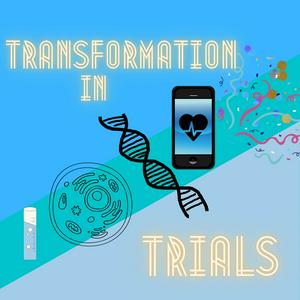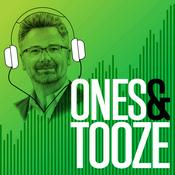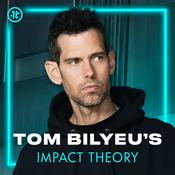88 episodes
- Send us a text
Want clinical research that respects real life? We sit down with Caroline Potts, GM of Site and Patient Services at MRN, to rethink how patients are recruited and supported when the standard trial model collides with work, school, caregiving, and distance. We start at the site level, exploring why trial sites remain the beating heart of studies, then unpack how participants actually arrive: investigator databases, advocacy networks, disease-specific portals, and focused social campaigns that reach people where they already are.
From there, we tackle the hidden friction in protocols. Do you really need a physical exam at every visit, or can a trained nurse complete most procedures at home, at work, or even at a holiday address? Caroline gets specific about what’s possible outside the clinic—centrifuges, compliant drug delivery, courier timing—and where the red lines remain, like imaging. The conversation separates hype from substance on decentralised trials, arguing that the true shift is operational flexibility, not just apps. We also assess AI’s promise in finding eligible patients while calling for rigorous validation and thoughtful use alongside human support.
The heart of the episode is practical patient centricity. We discuss rare diseases and long travel times, evening and weekend scheduling, reimbursement barriers, and how small design choices can either invite people in or push them away. Participants commit years of their lives to studies; the least we can do is meet them halfway. Caroline closes with a bold wish: compress timelines across the entire development arc. Precision medicine has moved forward; trial operations must catch up.
If this resonates, follow the show, share it with a colleague, and leave a review to help more listeners find thoughtful conversations on modern clinical research.
Transformation in Trials is a podcast investigating how we can change life sciences to get treatment to patients faster.
I have been independently producing this episode since 2021. You can now support the show by Buying Us a Coffee. Each episode costs 99USD/ 85 EUR to produce.
Join the show as a guest - apply via this Form.
Support the show
________
Reach out to Ivanna Rosendal
Join the conversation on our LinkedIn page - Send us a text
Two leaders from Sionna Therapeutics walk through a 15‑year journey from Genzyme science to a public company advancing NBD1‑targeted therapies in cystic fibrosis. We examine why most patients still fall short of normal CFTR, how a predictive assay de‑risks choices, and what it takes to finance, hire, and execute with patients as the North Star.
Visit: sionnatx.com
Transformation in Trials is a podcast investigating how we can change life sciences to get treatment to patients faster.
Getting treatment to patients faster requires well-functioning organizations. How do we do that? Ivanna Rosendal has written a book called Maneuvering Monday, about how a group of people try to make their organization better. You are certain to have a good laugh at their expense. And potentially get inspired how you can help make your company better.
I have been independently producing this episode since 2021. You can now support the show by Buying Us a Coffee. Each episode costs 99USD/ 85 EUR to produce.
Join the show as a guest - apply via this Form.
Support the show
________
Reach out to Ivanna Rosendal
Join the conversation on our LinkedIn page AI Won’t Replace Writers, But Writers Who Use AI Will Outpace The Rest with Bilal Bham
03/12/2025 | 24 mins.Send us a text
What if the documents behind a clinical trial were written with the patient’s voice in mind and delivered at the speed modern science deserves? We sit down with writer, consultant, and patient-advocate Bilal Bham to unpack how protocols, clinical trial applications, and clinical study reports actually get made, why structure beats chaos, and where AI genuinely shortens timelines without cutting corners. From first protocol outlines to final submissions, Bilal shares a process that blends proprietary AI with rigorous human review to turn dense source data into clear, regulator-ready narratives.
The conversation gets real about the craft. Bilal argues that new writers still need to learn documents end-to-end: where to find truth in source files, how to build arguments across sections, and how to keep stakeholders aligned from biostats to clinical operations. AI helps when you feed it the right ingredients, starting with comprehensive bullet-pointed outlines rather than instant prose. That discipline shaves weeks off delivery and keeps quality high, especially when regulators are exploring AI on their side of the table and expect traceability, accuracy, and transparent logic.
We also explore the power of inclusion. Living with Graves’ disease and thyroid eye disease, Bilal explains how patient experience sharpens trial design, consent language, and symptom reporting. Diversity is not a banner; it is better science. Recruiting across local communities in the UK, US, and Europe strengthens external validity and reveals gene-environment differences that change safety and efficacy. Pair that with plain-English patient summaries, fair compensation, and trusted community partners, and you get trials that are faster to run, easier to understand, and more likely to help the people who need them most.
If you care about clinical trials, regulatory writing, medical communications, AI in pharma, and building inclusive studies that actually work in the real world, this conversation is for you. Subscribe, share with a colleague, and leave a review with your take: where should inclusion start in clinical research?
Transformation in Trials is a podcast investigating how we can change life sciences to get treatment to patients faster.
I have been independently producing this episode since 2021. You can now support the show by Buying Us a Coffee. Each episode costs 99USD/ 85 EUR to produce.
Join the show as a guest - apply via this Form.
Support the show
________
Reach out to Ivanna Rosendal
Join the conversation on our LinkedIn pageFrom Grief To Global Advocacy For Clinical Research In Infectious Diseases with Christian John Lillis
19/11/2025 | 31 mins.Send us a text
A routine dental visit, a few days of diarrhea, and then the unthinkable: septic shock and a life lost within 24 hours. Our guest, Christian John Lillis, shares how losing his mother Peggy to a community-acquired C. diff infection exposed a silent public health crisis and led him to co-found the Peggy Lillis Foundation (https://cdiff.org/). From that moment, advocacy turned concrete: raising awareness, training volunteers to speak with lawmakers and media, and pushing for policies that reflect the true burden of C. diff and other infectious diseases.
We dig into what a modern, patient-centred clinical trial should look like. Christian explains why initial cure is not the only outcome that matters; for C. diff, the recurrence rate can define whether someone can work, travel, or care for family. We unpack why decentralized trials, telehealth diagnostics, and home nursing can transform access, speed up recruitment, and improve diversity—critical for evidence that holds up in real life. We also examine antibiotic stewardship, exploring how pathogen-targeted therapies can reduce collateral damage and help fight antimicrobial resistance while maintaining or improving efficacy and tolerability.
Policy and incentives are central. Christian outlines the limits of market-driven R&D for smaller but deadly pathogens like VRE and CRE, and why tools such as GAIN, LPAD, and potential subscription models are needed to fund anti-infectives society desperately requires. We talk global spread, declining vaccination, and the communications gap that leaves many people vulnerable to misinformation. On the personal level, he shares practical steps for self-advocacy: bring someone to urgent visits, prepare questions, be firm and respectful, and share your story to fuel change.
If you care about patient advocacy, clinical trial innovation, C. diff awareness, antibiotic resistance, and public health, this conversation offers both a roadmap and a rallying cry. Subscribe, share with a friend who works in healthcare, and leave a review telling us one change you’d make to make trials truly patient centred.
Transformation in Trials is a podcast investigating how we can change life sciences to get treatment to patients faster.
Getting treatment to patients faster requires well-functioning organizations. How do we do that? Ivanna Rosendal has written a book called Maneuvering Monday, about how a group of people try to make their organization better. You are certain to have a good laugh at their expense. And potentially get inspired how you can help make your company better.
I have been independently producing this episode since 2021. You can now support the show by Buying Us a Coffee. Each episode costs 99USD/ 85 EUR to produce.
Join the show as a guest - apply via this Form.
Support the show
________
Reach out to Ivanna Rosendal
Join the conversation on our LinkedIn page- Send us a text
What if millions of electronic health records could transform how we understand medicine? In this thought-provoking conversation with Dr. Manfred Stapff, physician and real-world evidence pioneer, we uncover how anonymized patient data is revolutionizing healthcare research.
Dr. Stapff reveals how the 21st Century Cures Act dramatically accelerated electronic medical record adoption in the US, creating unprecedented opportunities for researchers. Today, with 90-95% of American hospitals digitized and similar progress across parts of Europe, we're witnessing a fundamental shift in how medical knowledge is generated. But this transformation comes with crucial questions about data quality, privacy, and interpretation.
Fascinatingly, real-world evidence offers solutions to problems traditional clinical trials can't address. While trials remain essential for developing new treatments, aggregated real-world data can help identify unexpected disease patterns, like rising cancer rates in younger populations. The sheer scale of this information—potentially millions of patient experiences—creates statistical power that individual studies could never achieve.
The conversation takes a particularly compelling turn when Dr. Stapff shares his vision for democratizing medical knowledge. "What did we do 40 years ago when we had a question? We asked our doctor," he explains. "If we had access to electronic medical records... we could have access to the experience of thousands of physicians who treat hundreds of thousands or even millions of patients." This democratization could fundamentally change how patients understand their conditions and treatment options.
Explore the emerging world of federated data networks, statistical literacy challenges, and why Dr. Stapff believes pharmaceutical companies should measure success not just in dollars but in lives improved. Whether you're a healthcare professional, researcher, or simply curious about the future of medicine, this episode offers valuable insights into how data is reshaping healthcare as we know it.
Transformation in Trials is a podcast investigating how we can change life sciences to get treatment to patients faster.
Getting treatment to patients faster requires well-functioning organizations. How do we do that? Ivanna Rosendal has written a book called Maneuvering Monday, about how a group of people try to make their organization better. You are certain to have a good laugh at their expense. And potentially get inspired how you can help make your company better.
I have been independently producing this episode since 2021. You can now support the show by Buying Us a Coffee. Each episode costs 99USD/ 85 EUR to produce.
Join the show as a guest - apply via this Form.
Support the show
________
Reach out to Ivanna Rosendal
Join the conversation on our LinkedIn page
More Business podcasts
Trending Business podcasts
About Transformation in Trials
A podcast about the transformations in clinical trial. As life science companies are pressured to deliver novel drugs faster, data, processes, applications, roles and change itself is changing. We speak to people in the industry that experience these transformations up close and make sense of how the pressure can become a catalyst for transformation.
Podcast websiteListen to Transformation in Trials, The Business and many other podcasts from around the world with the radio.net app

Get the free radio.net app
- Stations and podcasts to bookmark
- Stream via Wi-Fi or Bluetooth
- Supports Carplay & Android Auto
- Many other app features
Get the free radio.net app
- Stations and podcasts to bookmark
- Stream via Wi-Fi or Bluetooth
- Supports Carplay & Android Auto
- Many other app features


Transformation in Trials
Scan code,
download the app,
start listening.
download the app,
start listening.





































